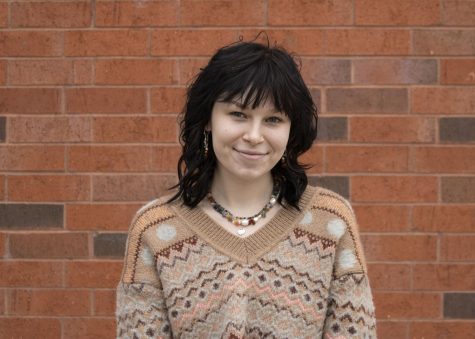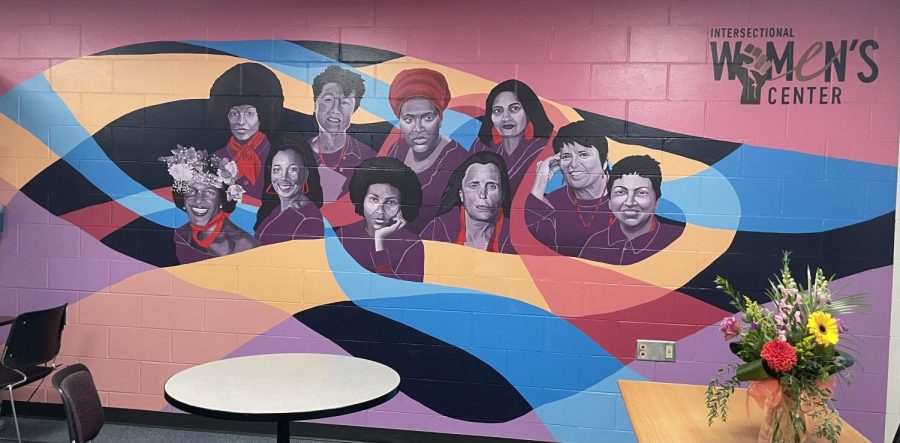Intersectional Women’s Center is now open
“A space to be untethered to the white ideal”
Photo by Bridget Maxwell
Hibbard Hall welcomes the Intersectional Women’s Center.
UW-Eau Claire welcomes the new Intersectional Women’s Center (IWC) in Hibbard 385.
Events took place on the day of the opening, Sept. 23, including an artist discussion of the mural in the new room, a keynote speaker and an unveiling of the new home for IWC.
The IWC mission statement is, “creating an inclusive campus community that challenges students to develop their intellectual, personal, cultural and social competencies.”
Mayly Vang and Megan Miller collaborated with associate professor of painting, Jill Olm, to represent 10 feminists of color on the new mural in the center.
The feminists were selected by Women United and Fighting. The mural is aimed at inspiring as well as supporting the women of color on campus, said Rose-Marie Avin, professor of economics and director of the WGSS program, said.
Keynote speaker, Sandibel Borges, said how crucial these spaces are for Queer, Transgender, Intersex, Black, Indigenous and People of Color (QTIBIPOC).
Borges said safe spaces create communities and allow QTIBIPOC to not fear the repercussions of having an open dialogue on race and will not be overshadowed by white defensiveness and guilt.
The IWC exists so QTIBIPOC isn’t forced to adapt to whiteness and made to feel tokenized, Borges said, a place of escape, if only for a moment.
“The fight to simply exist is exhausting, therefore knowing there is at least one place where a woman of color can feel safe and heard is fundamental,” Borges said.
IWC provides educational gender content, programming that relates to the intersections affecting women of color at UW-Eau Claire, a space to explore and hold conversations and a safe space for students to share their experiences being at a predominantly white campus according to a UW-Eau Claire press release.
“When catering to marginalized identities, everyone learns from it,” Borges said.
According to IWC, the center is anti-racist and will provide information on the systems of oppression, decolonizing gender content that stands for sexism and misogyny and QTIBIPOC history materials.
UW-Eau Claire’s website said it is a community for those with intersectional and marginalized identities.
“Get students to think of who’s being rewarded under the system of oppression and who is suffering,” Avin said.
Sarita Mizin, assistant professor of Women’s, Gender and Sexuality Studies, said the framework of the center is intersectionality and using it as a tool to analyze the structure of power we live in, as well as how power feeds those systems of oppression.
“Feminism is for everybody, and will benefit us all, so welcome,” Sarita Mizin said.
This center is for students to feel safe and that it is theirs to use in any way they see fit. As well as the educational aspect, such as discussions and educational material, Avin said.
According to the UW-Eau Claire website, this is designed to be a transformative space that helps students explore their racial, ethnic and cultural identities through conversation and readings.
Maxwell can be reached at maxwelbk4749@uwec.edu.

Bridget Maxwell is a fourth-year journalism and political science student, and this is her third semester on The Spectator staff. When she isn't writing for The Spectator, she is with friends sitting on the couch binging "Dance Mom's" or "It's Always Sunny in Philadelphia."

